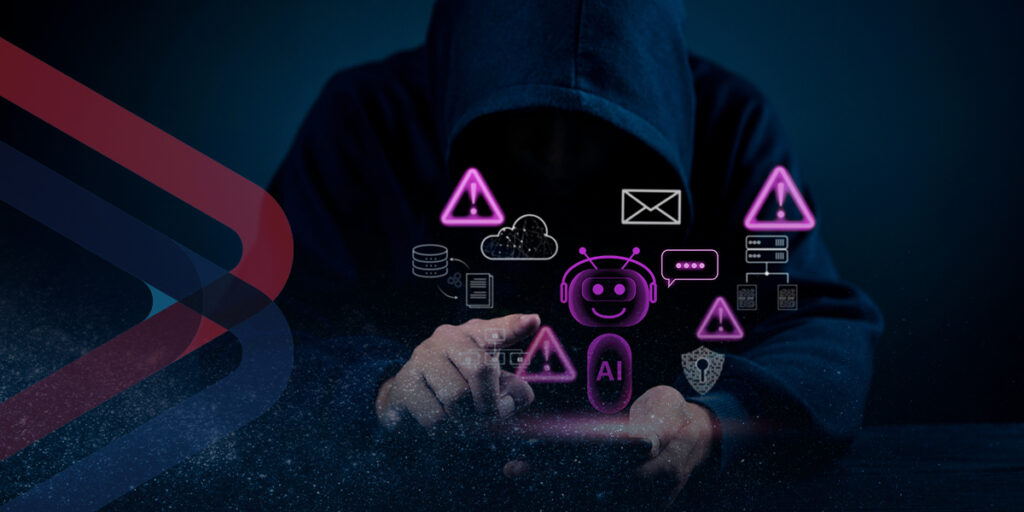
Cybersecurity Awareness Month is all of October, and a perfect time to tighten up your defences against cyber attacks as a small business. Cybercrime isn’t just “an enterprise problem. In Canada, 1 in 6 businesses reported a cybersecurity incident in 2023, and in 2025, 73% of small businesses have experienced a cybersecurity incident.
While many business owners still underestimate the risk, a majority of SMEs are vulnerable to cyber attacks, and most are not prepared.
This guide pulls together resources from Canadian and Alberta Cybersecurity authorities and provides simple tips for small businesses to stay cyber safe.

Why Small Businesses are Targeted and How AI is Changing Cyber Threats
Attackers go where defences are lightest. We are seeing growing attacks and threats to small businesses because they present an easy prey. The most common threats among small firms included scams/fraud, identity theft (e.g., credential theft), phishing emails and ransomware.
Canada’s latest threat assessments flag AI-assisted phishing, deepfakes and faster malware iteration that make scams more convincing and harder to spot, particularly for organizations with limited IT capacity.
AI-enhanced cyber attacks come in various forms, including:
- AI-Generated Phishing: AI writes realistic, personalized emails or texts that mimic suppliers, banks, or colleagues to trick employees into sharing sensitive data or making payments.
- Voice & Video Deepfakes: Attackers clone a CEO’s voice or create fake video calls to authorize wire transfers or extract confidential information.
- Automated Social Engineering: AI scans the web and social media to build detailed employee profiles, helping scammers craft believable messages that sound personal.
- Credential Stuffing & Brute Force: AI automates password guessing using breached data, testing thousands of combinations per second until it finds a match.
- Adaptive Malware: AI-driven malware changes its behaviour and appearance to avoid detection by antivirus tools or security filters.
- Exploit Discovery: AI tools scan public websites and systems for vulnerabilities faster than humans can patch them, allowing rapid exploitation.
- Business Email Compromise (BEC): AI helps refine and automate fraudulent emails that impersonate executives or vendors requesting urgent payments.
- Fake Support or Chatbots: AI-powered fake support agents or chatbots mimic real companies to steal credentials or trick users into installing malware.
- Smishing and Vishing: AI-generated SMS and voice calls use natural language and personalization to convince recipients to click links or reveal info.
What You Can Do as a Small Business
According to the Canadian Centre for Cyber Security, here are some actions small businesses can take:
- Patch fast, patch everything: Turn on automatic updates for OS, browsers, and key apps. Many incidents exploit known vulnerabilities.
- Turn on MFA everywhere: Enable multi-factor authentication on email, accounting, banking, Microsoft/Google, payroll, and remote access. It blocks most account takeovers.
- Harden email & browsers: Use a modern browser with anti-tracking and safe-browsing turned on; filter inbound email for phishing and malicious attachments.
- Back up like your business depends on it: 3-2-1 rule: 3 copies, 2 different media, 1 offline/immutable. Test restores quarterly.
- Password manager and unique logins: Adopt a team password manager and kill password reuse for sensitive applications. Set role-based access and remove old accounts.
- Segment networks: Separate office PCs, POS/operational devices, guest Wi-Fi, and cameras so one compromise doesn’t spread.
- Train for AI threats: Short, recurring awareness moments: how to spot urgent payment requests, voice spoofing, and QR-code lures; teach “pause and verify.”
- Vendor and data hygiene: Inventory who has access to your systems/data. Remove stale shares; require MFA and minimum security posture for key vendors.
- Write a 1-page response plan: Who to call, how to isolate an infected device, how to switch to backups, who informs customers, and how to report. Practice it once a year.
- Connectivity hygiene: If you run multiple sites, farms, shops, or yards, standardize routers and firmware and use the same MFA policies everywhere.

Key Resources to Learn More About Cybersecurity for Small Businesses
- Get Cyber Safe – Small Business Guides
- Canadian Centre for Cyber Security Baseline Controls & “Top Measures”
- CyberSecure Canada (SMB certification and how-to).
- Alberta Small Business Resources
- National Cyber Threat Assessment 2025–26 (what’s coming next).
Where MCSnet Can Help
- Reliable, business-grade connectivity for offices, farms, shops, and remote sites.
- Router and Wi-Fi upgrades to support secure segmentation and modern standards.
- Local, priority support to help you troubleshoot connectivity issues that overlap with security
To learn more about how MCSnet can assist you with your business connectivity needs, contact one of our business advisors.

